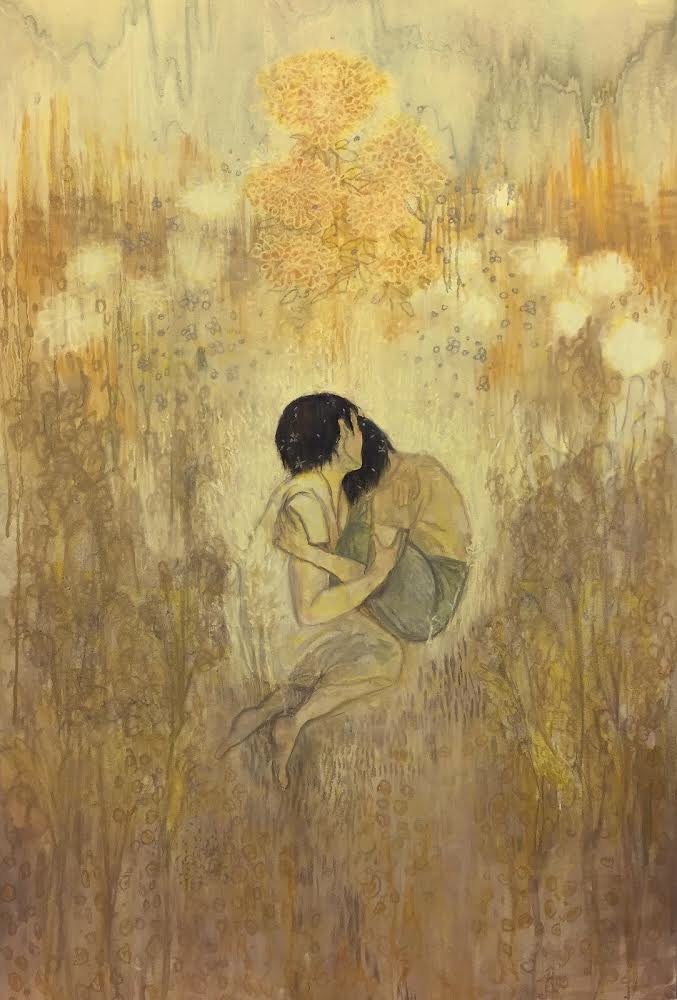
Jieun Yu
The student group Stand with “Comfort Women” (STAND) will host an opening reception in Maya’s Gallery on Thursday for an exhibition in Silliman College called “Historical Trauma.”
The exhibition will feature visual art by seven student artists. Students established STAND in 2017 after several of these survivors came to Yale’s campus to give a speech. “Comfort women” were women and girls forced into sexual slavery by the Imperial Japanese Army before and during World War II.
“Art speaks a very universal language,” said Margaret Sun ’22, the main organizer of the exhibit. “Since these events occurred in Asia and most people here don’t understand those languages, we naturally took the path of showing art pieces. Once people see these works they will be moved by it, they will try to read it and understand it — art can influence the most amount of people.”
According to Sun, the exhibition was partly inspired by the artworks of Jieun Yu ’22, who volunteered in a survivors’ shelter in Korea in the summer of 2019. During her visit, Yu saw the artworks the survivors painted in their art therapy program.
“After I visited these survivors, I saw how much they wanted to be remembered,” Yu said. “They wanted to be heard, they wanted their stories to be told correctly. I think one more person learning about their struggles is a small step toward justice.”
Yu said that after meeting survivors in person, she realized that, in her own art, she wanted to focus on depicting the women’s stories instead of representing her own perceptions of their emotions. The two paintings she submitted to the “Historical Trauma” exhibition, titled “Your History Never Happened” and “Holding On,” draw directly from survivors’ testimonies.
The exhibit also includes photos taken by Isabel Guarco ’20. Some photos depict a “comfort station” in the Philippines; others depict Korean protesters in front of the Japanese embassy in Korea. These protesters have gathered every Wednesday for 30 years, asking the Japanese government to acknowledge its war crime, issue an official apology and accurately record the crime in history textbooks.
Because STAND sought to present multiple interpretations of “Historical Trauma,” the exhibit does not only feature the history of comfort women.” The exhibit features art pieces by Samantha Trimboli ’23, which depict what Trimboli describes as trauma and “female vulnerability.”
According to Clint Yoo ’20, founder and president of STAND, the organization has always linked closely with art. Since the group’s founding in 2017, one of its primary objectives has been to establish a “statue of peace” — a statue originated in Korea commemorating the lost youths of comfort women victims — on Yale’s campus. The statue was established in front of the Asian American Cultural Center in May 2019, but was removed after two weeks due to restrictions from Yale’s Committee on Art in Public Spaces. The group then needed to find a new location for the statue. The new statue’s unveiling ceremony will take place on Mar. 1 at the Korean American Society of Connecticut in Hamden. The group also hosts film screenings about the history of comfort women.
Yoo said art is one of the best ways to render heavy topics such as historical trauma accessible to audiences. Yoo added that Yale students have many stories to tell and are able to create art of very high quality. The exhibition attempts to give these students a voice.
According to Yoo, while the group’s name suggests that it focuses on a purely historical issue, the organization is also concerned with current wartime sexual violence. In the 80 years between WWII and the present, the comfort women history has gone largely unrecognized, and it has not been viewed as relevant to women’s rights or matters of international security. These histories have powerful valences in war zones today, Yoo said.
Sun said she hopes viewers of the exhibition will “feel the power of art” and see that there are many stories of historical trauma to be told in every culture. The exhibit will encourage people to look at their own histories and see how these histories inform their identities, while also encouraging them to learn about the histories of others.
“The oppression of women’s rights takes many forms,” Yoo said. “We hope to get a larger awareness out there about these very fundamental human rights issues. Through this exhibition, by incorporating a lot of different stories of historical trauma, we hope that we can formulate some kind of solidarity.”
Silliman College is located at 505 College Street.
Carrie Zhou | pinyi.zhou@yale.edu







